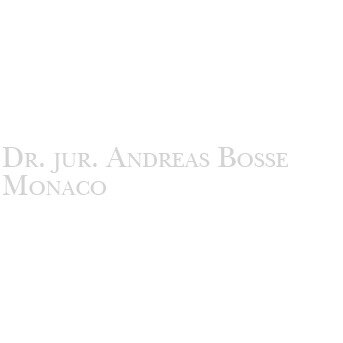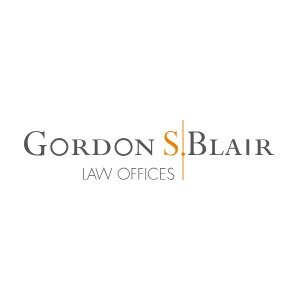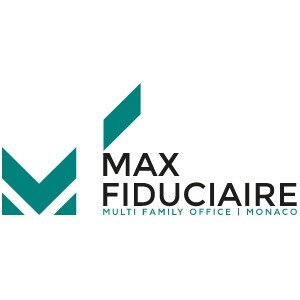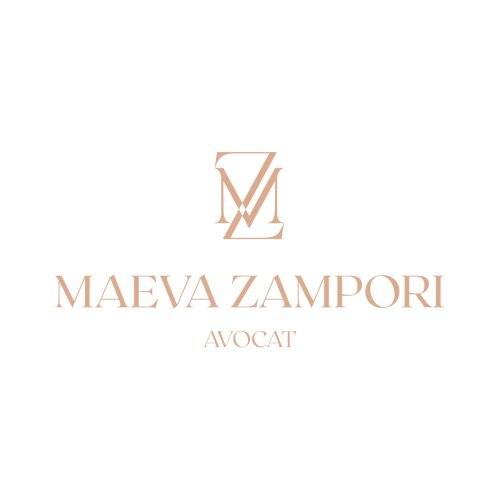Best Inheritance Law Lawyers in Monaco
Share your needs with us, get contacted by law firms.
Free. Takes 2 min.
List of the best lawyers in Monaco, Monaco
1. About Inheritance Law in Monaco, Monaco
Inheritance law in Monaco is governed by the principality's civil law framework, primarily the Code Civil Monégasque. This framework regulates how estates are distributed, who has reserved rights, and how heirs are identified and paid. In Monaco, notaries often administer succession matters, confirm heirs, and oversee the transfer of titles and assets to beneficiaries.
A key feature of Monaco's system is the concept of forced heirship, which protects certain close relatives by guaranteeing them a portion of a deceased person’s estate. The surviving spouse and children frequently have protected interests that must be respected when a will is drafted or an estate is settled. Estate procedures typically involve formalities, including the involvement of a notary (avocat notaire) and, in contested cases, the Monaco courts.
For residents with international assets, Monaco's inheritance rules interact with cross-border issues such as foreign real estate, bank accounts, and trusts. Proceedings may involve both Monaco authorities and foreign jurisdictions, requiring careful coordination to avoid conflicts of law. In practice, many people seek legal counsel to navigate the complex interplay between Monaco law and foreign legal systems.
Source: Monaco government information and professional practice guides outline the role of the civil code, notaries, and the general framework for succession in Monaco. See the Monaco government portal for official guidance on civil matters and inheritance procedures.
Note: For authoritative, jurisdiction-specific guidance, consult official Monaco sources and a Monaco-qualified avocat (lawyer) or notaire.
2. Why You May Need a Lawyer
Drafting or updating a will in Monaco requires attention to local formalities and reserved rights. A lawyer ensures compliance with the Code Civil Monégasque and minimizes challenges from interested heirs. This reduces the risk of invalid dispositions or contested estates years after death.
Facing a dispute over the validity of a will or the share of an heir can lead to court proceedings. A Monaco solicitor or avocat notaire can prepare pleadings, gather evidence, and represent your interests in probate or succession litigation. Quick, effective counsel can prevent delays and protect your position.
Cross-border assets add complexity. If you own Monaco real estate while also holding assets abroad, you need coordinated guidance on how foreign inheritance laws interact with Monaco rules. A qualified lawyer can structure the estate to optimize protection and minimize conflicts of law.
When a surviving spouse or dependent child claims rights under reserved portions, a lawyer helps negotiate settlements or prepare legals steps to preserve family interests. This is particularly important in blended families or where there are multiple jurisdictions involved.
For executors or administrators, a Monaco attorney can supervise the estate administration, verify tax implications, and ensure proper transfer of titles and assets. Professional assistance helps ensure timely completion of probate and accurate accounting to beneficiaries and the court.
Source: Monaco legal practice notes and notarial guidelines emphasize the importance of professional assistance in will drafting, probate, and cross-border estates. See Monaco government and notary resources for practical steps and roles.
3. Local Laws Overview
Monaco relies on the Code Civil Monégasque for private law matters, including inheritance, property transfers, and family rights. The code is complemented by royal ordinances and regulatory guidance published by Monaco’s authorities. Notaries play a central role in validating wills, authenticating documents, and overseeing estate administration.
The jurisdiction recognizes reserved portions for certain heirs, which protects the rights of close family members against overly restrictive dispositions. Wills and testamentary documents must comply with formalities to be enforceable in Monaco courts. Cross-border considerations require attention to how Monaco rules interact with foreign laws and international agreements.
Two important areas to review are (1) the allocation of the reserve rights of heirs and (2) the procedures for probate and transfer of assets. If you hold Monaco real estate or bank assets, you should understand how succession rights affect ownership and transfer upon death.
Recent trends in Monaco include increased attention to international succession issues and clearer guidelines for cross-border estates. These developments reflect Monaco’s growing role as a residence and investment hub for people with assets in multiple countries. For authoritative details, consult Monaco’s official sources and professional bodies.
Source: Official Monaco legal framework and professional practice references describe the Code Civil Monégasque, the role of notaries, and the interaction with cross-border estates. See the Monaco government portal and the Ordre des Notaires de Monaco for formal descriptions and guidance.
4. Frequently Asked Questions
What is the Code Civil Monégasque?
The Code Civil Monégasque is the principal source of private law in Monaco, including inheritance. It sets out rules on heirs, succession, and property transfers within the principality. Avocats and notaries use it to advise clients and draft documents.
How do I draft a valid will in Monaco?
Consult a Monaco-avocat or notaire to draft a will that complies with local formalities and reserved rights. A properly drafted will reduces the risk of invalid provisions and later disputes.
What is the reserve part in Monaco inheritance law?
The reserve part protects certain heirs by guaranteeing them a portion of the estate. The exact portion depends on familial relationships and applicable rules in Monaco.
How long does probate typically take in Monaco?
Probate in Monaco can take several months to more than a year depending on complexity, cross-border issues, and whether disputes arise. A lawyer helps manage timelines and filings.
Do I need a notary for an inheritance matter in Monaco?
Notaries are commonly involved in Monaco for validating wills, authenticating documents, and administering estates. They coordinate with the courts as needed.
How much does a Monaco inheritance lawyer cost?
Fees vary with complexity, but expect charges for consultation, drafting, filing, and potential court representation. Ask for a written estimate and fee schedule in advance.
Can non-residents inherit Monaco property?
Non-residents can inherit Monaco assets, but cross-border issues and tax considerations may apply. Professional advice helps ensure compliance and efficiency.
What is the difference between a will and a testament in Monaco terms?
In Monaco practice, testamentary documents are formal and governed by local requirements. A will is a type of testament that must meet statutory formalities for validity.
How are international assets treated in Monaco succession?
International assets require coordination between Monaco law and foreign jurisdictions. A Monaco avocats or notaire can coordinate filings and asset transfers across borders.
Is there inheritance tax in Monaco?
Monaco has a unique tax regime and the inheritance tax treatment varies by relationship and asset type. An advisor can explain current rates, exemptions, and planning opportunities.
Do I need translation or localization for documents in Monaco?
Yes, official documents typically require authentication in French or Monégasque, with translations as needed for foreign authorities or institutions.
Can I contest a will or a provision in Monaco?
Contesting a will is possible under certain grounds, such as violation of reserved rights or improper formalities. A Monaco avocat can guide clients through the process.
5. Additional Resources
- Monaco government portal (gouv.mc) - Official information on civil matters, inheritance procedures, and notarial services.
- Ordre des Notaires de Monaco - Professional body regulating notaries in Monaco; resources on wills, estates, and probate practice.
- Monaco Court or Tribunal resources - Official portals with information on probate procedures and court processes in succession matters.
6. Next Steps
- Define your goals and gather all relevant documents (birth certificates, death certificate, property deeds, bank statements) within 1 week.
- Consult a Monaco-avocat or notaire to assess your position and outline a plan within 2 weeks.
- Obtain a written estimate of fees and timelines from your chosen legal counsel within 3 weeks.
- Prepare and file any required documents to the notary or court, with a concrete timetable provided by counsel within 1 month.
- Address cross-border considerations with your lawyer, especially if assets exist outside Monaco, within 6 weeks.
- Review and update your estate plan periodically, at least every 2-3 years or after major life events.
- Maintain ongoing communication with your counsel to monitor progress and adjust strategy as needed.
Citations and references to official resources are available through Monaco’s government portal and professional notarial bodies. For jurisdiction-specific guidance, rely on a Monaco-qualified avocat or notaire to ensure compliance with local laws and procedures.
Lawzana helps you find the best lawyers and law firms in Monaco through a curated and pre-screened list of qualified legal professionals. Our platform offers rankings and detailed profiles of attorneys and law firms, allowing you to compare based on practice areas, including Inheritance Law, experience, and client feedback.
Each profile includes a description of the firm's areas of practice, client reviews, team members and partners, year of establishment, spoken languages, office locations, contact information, social media presence, and any published articles or resources. Most firms on our platform speak English and are experienced in both local and international legal matters.
Get a quote from top-rated law firms in Monaco, Monaco — quickly, securely, and without unnecessary hassle.
Disclaimer:
The information provided on this page is for general informational purposes only and does not constitute legal advice. While we strive to ensure the accuracy and relevance of the content, legal information may change over time, and interpretations of the law can vary. You should always consult with a qualified legal professional for advice specific to your situation.
We disclaim all liability for actions taken or not taken based on the content of this page. If you believe any information is incorrect or outdated, please contact us, and we will review and update it where appropriate.














